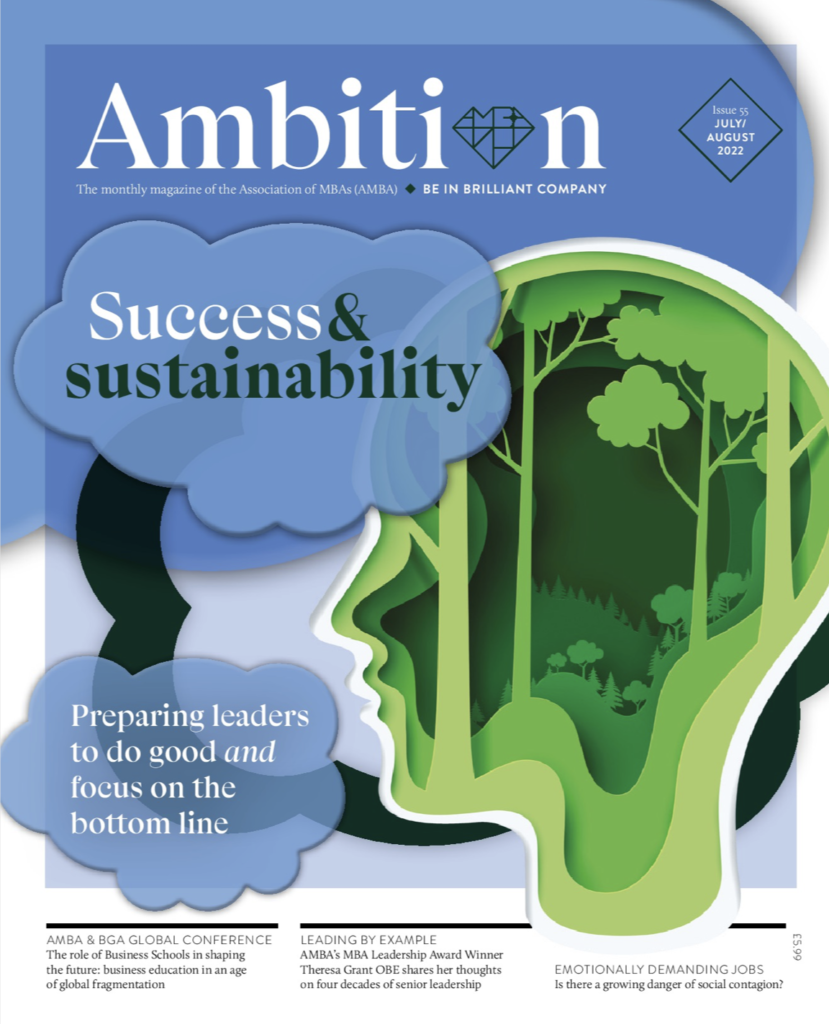
How to spot truly LGBTQ+ inclusive organisations
If you want to find out just how committed to LGBTQ+ inclusion a prospective employer is, look for these top signs from myGwork’s co-founders Adrien and Pierre Gaubert


Most business schools around the world were created in the image of the first business schools in the US, but they have evolved in line with international trends, and the influence of local contexts. International trends have given schools a sense of homogeneity, while local contexts have given them specific identities.
Current debates about diversity and inclusion (D&I) pose challenges for business schools in terms of research, education, admissions and policies, with schools addressing these issues in different ways. But there are still great challenges.
In a keynote session at the AMBA & BGA Global Conference 2022, Cristina Vélez Valencia, Dean of Universidad EAFIT, told delegates how business education in emerging economies offers valuable lessons for thinking through these issues from a global perspective, and offers insights into the challenges of developing truly inclusive educational environments for future business leaders.
Data on D&I is always incomplete, and you will never have a perfect set that will tell you exactly what’s happening in your organisation. So, my advice is to be creative with how you get information and try and make sense of lots of sources. My second piece of advice is to use qualitative information – surveys, conversations, and ethnographic studies. But be honest with what you’re getting. When you have all the information, you need to look at the big picture, because diversity is intersectional, so you’ll always have to dig deeper. You might focus on gender, but there will be a new frontier within that – such as regional variances.
She then explained that an issue, when considering diversity, is the importance of context:
An MBA student from Peru and an MBA student from Kenya might have more in common – for example, education and class background – than a student from the centre of Lisbon and a student from the outskirts of the city, so consider that context.
Vélez moved on to talk about ways to promote diversity within universities and she said more questions need to be put on the table to inform this conversation.
Having diversity is non-negotiable,’ she said. “Diversity is required for accreditations and students are asking for it. But we have to do it in a way that makes sense for the strategy of the school. We must have non-judgemental discussions to enable this. We need to share best practices in an honest way. We need to understand what fails as well as what works.
Concluding her session at the AMBA & BGA Global Conference 2022, Vélez outlined incentives for schools to be more inclusive. She said:
Incentives have to recognise that diversity is contextual, and do not lead to tokenism. We have to recognise that people need a safe place to talk about their identities, without over-simplifying the issue.
“Data is always insufficient; we have to be creative in terms of gathering and sharing information; we have to look at the big picture; we have to understand that diversity is contextual and intersectional; and we need to appreciate that there is a lot more we have to do together to build a network of best practice and facilitate a discussion within our schools.

This article has been adapted from one which originally appeared in the July/August 2022 edition of Ambition, the magazine of the Association of MBAs (AMBA).

If you want to find out just how committed to LGBTQ+ inclusion a prospective employer is, look for these top signs from myGwork’s co-founders Adrien and Pierre Gaubert

How are business schools working to widen access to education and address inequality?

High cultural intelligence in leaders is positively correlated with organisational performance and can help us tackle bias in recruitment, says Included’s Lydia Cronin
For questions about editorial opportunities, please contact:

